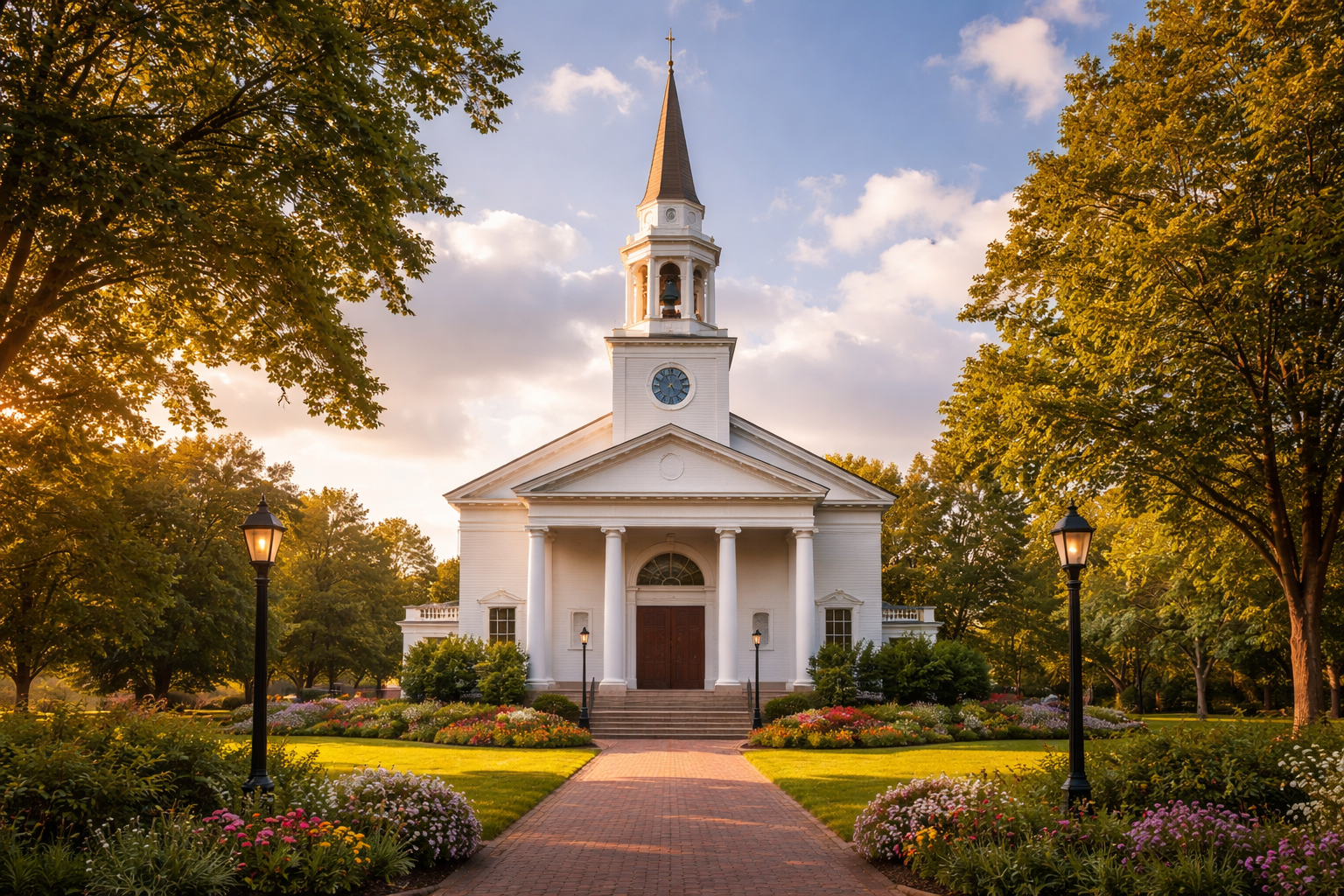A conservative parish in South Carolina is under fire for its attempts to bring repentance to the denomination
The Episcopal Diocese of South Carolina, as well as the worldwide Anglican Communion, are experiencing a whirlwind that has whipped up as the result of winds of spiritual reformation that are blowing through one of their local congregations, All Saints Episcopal Church in Waccamaw County, S.C.
Delegates of the diocese gave All Saints Waccamaw delegates a seat and voice but no vote at their March convention. In the opinion of E. Nick Zeigler, diocesan lawyer, All Saints Waccamaw church was “in disunion” with the diocese because of a violation of canon law–a failure to report a mortgage transaction.
The 233-year-old congregation has asked the Court of Common Pleas for a declaratory judgment that the parish owns the property and that the diocese’s claim to ownership is incorrect. The court is expected to make a decision sometime in September.
All Saints Waccamaw has held the title to the property since they were incorporated on June 21, 1902. All local Episcopal Church properties are usually held in trust for a diocese. The court is expected to make a decision sometime in September.
Members of the parish came together in a half night of prayer on March 7. They heard words of encouragement through prophecy and words from Scripture as they prepared to remain faithful to their vision statement to become a people who risk boldly in sharing the full counsel of God.
There are an astonishing number of ministries for the church’s size. The parish of 750 members has 60 ministries, chiefly because Rector Emeritus Chuck Murphy III’s 18-year apostolic, charismatic leadership has led All Saints Waccamaw into becoming a center of teaching and healing for South Carolinians.
The church’s contemporary worship service, called ACCESS–one of three services on Sunday morning–grew 40 percent during the last year. A weekly discipleship class, led by Deacon Erilynne Barnum, draws some 400 women. Miracles are being reported regularly at a packed mid-week healing service.
The same light that has attracted South Carolinians to All Saints Waccamaw, however, has also been attracting the attention of the rest of the Anglican Communion–the worldwide association of national Anglican churches–while upsetting the status quo of more traditional and liberal parishes.
The All Saints campus, on 66 acres, has become headquarters to the newly formed Anglican Mission in America (AMiA), which grew out of the First Promise reform movement founded by Murphy. First Promise called for repentance and reform within the Episcopal Church or the establishment of an alternative Anglican “province”–a principal organizational unit of the denomination. The group’s January conference drew 800 Episcopalians calling for reform.
Conservative bishops across the Anglican Communion had first tried
to call the Episcopal Church–the association’s U.S. member–to repent. Then, at the Lambeth Conference in Canterbury, England, in 1998, they led the majority to approve resolutions on sexual conduct that were subsequently largely ignored in most U.S.Episcopal dioceses.
Murphy’s leadership drew attention from outside the United States, from Anglican primates in Southeast Asia and Africa who were concerned that the Episcopal Church had declared itself no longer within the orthodox biblical faith and thus not faithful to the gospel.
Archbishops Moses Tay of Southeast Asia and John Rucyhana of Rwanda brought Murphy III and John Rodgers, another leading reform advocate, to Singapore a year ago to consecrate them as missionary bishops in the United States under their jurisdiction.
Then, on June 24, four more American priests were consecrated in Denver. Both Presiding Bishop of Canterbury Frank Griswold and Archbishop of Canterbury George Carey warned all involved about “the serious consequences” of these actions.
This missionary endeavor has adopted First Promise’s goals to move toward a missions-driven, mainstream Anglican province in America united in Jesus Christ as the Son of God and the validity of the Bible. So far, 40 churches have come under AMiA’s jurisdiction. This reform movement hopes to attract others or plant churches for those with Anglican leanings.
Some, such as Archbishop Maurice Sinclair from South America, want to see all of the 38 Anglican archbishops who met in March at Kanuga in Hendersonville, N.C., show responsibility toward one another so that one province does not damage the Anglican Communion’s credibility.
This will take time as Anglicans hold a fundamental moral principle of communion in fellowship while striving to maintain unity in diversity. A theological committee of the Anglican archbishops is studying how to both establish a formula for parameters of the Christian faith and discipline those outside it.
–Mary Theresa Webb











































